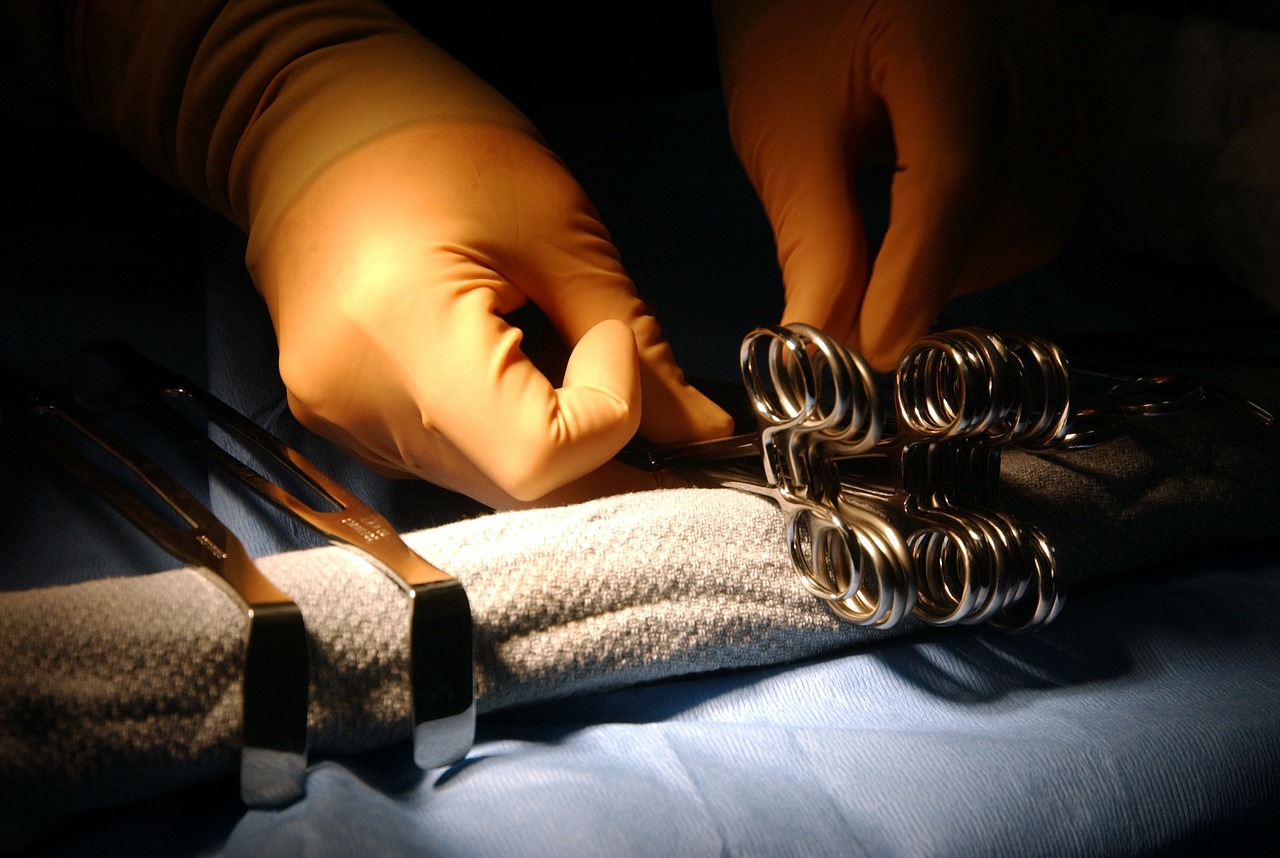There Are No Third Chances

Anowen tried to be happy for those entering the lab for their upgrades, their divorce from the limited flesh and marriage to the infinite possibilities of digital reality. It stood by looking passively professional instead; that at least guaranteed it wouldn’t look envious.
It listened to music through an implant in its skull while standing at the rigid attention its boss wanted. It couldn’t watch digital media through its contact lenses; that might prevent it from reacting when seconds counted, and someone might see the commercials in front of its eyes and think badly of it. It couldn’t risk a bad review, it needed this job. This position paid so much better than the dole out, and you had to work to have the chance to afford an upload. That was a luxury, unlike the gender neutral body mod it had chosen several years before, subsidized because it rendered it sterile.
Levan signaled Anowen through the network that he needed help in lab 5, one that was still in process. Finally, it’d be relevant and bill at a high rate. So much better than getting assigned clean up when someone else did the organ harvesting.
Anowen waved its badge and hand over the sensor, and it still hesitated to let it in. Levan did a voice over-ride, which meant it was high security. Was this something new? A higher pay rate then, to be sure. Anowen entered the room and the door closed immediately behind it.
Levan begged it, “Help me hold her down!” The old woman was convulsing, and the electrodes that went past her skull into the brain were flashing erratic patterns.
“You have to call for medical! I can’t handle this! I just do deconstruction or harvesting!”
“Help me hold her down so it at least has a chance of working!”
Anowen obeyed because it had no other idea what to do. Anowen winced at having to apply pressure to the limbs, bruising the skin. Levan pulled out straps from some hidden compartment on the table and restrained the patient. The body shook and tried to flail as mental commands failed, but now it could not accidentally strike a person or seriously damage itself. The convulsions eased as Anowen watched, fiddling with the restraints’ controls out of a desire to minimize the damage. Did this mean the body wouldn’t be harvested? Anowen’s social rating was high in part because of its ties to the life-saving organ harvesting here, getting shout outs and kudos and not quite joking requests for a new kidney from those who couldn’t afford artificial organs or out of ethics refused them.
The light patterns during an upload were usually fluid, a beautiful liquid rainbow as someone’s essence – the soul, if you believed in such a thing – changed, evolved, and was liberated. This was a dim, discordant mess. It grew darker before seemingly turning off. Anowen had never seen that before and said so.
“I have.”
“You have?” Anowen asked.
“It happens sometimes.”
“The process is perfect. It almost never goes wrong, Six Sigma quality levels – “
“No one would do this if they knew the failure rate.” Levan brought up a human-machine interface and entered a number of commands. The organ harvesting procedures started, and the surgical equipment descended from the machine. Anowen started working out of habit as much as the desire to not think about the failure. Anowen said nothing as the body was disassembled. The brain and a few bones were all that was left at the end.
Levan entered a code to flag the body as suffering severe osteoporosis. He began personally collecting the bones and brain, when usually it was only the brain that was flash burned.
Anowen objected. “The bones could be used, marrow harvested, bone grafts –“
“If the bones are sent anywhere but cremation immediately, someone could get a scan of the sensor entry points relative to the brain or how a sensor shifted and triggered seizures, killing the upload. No, it all gets burned.”
“That’s not policy.”
“That is policy when there is a failure.”
The words burned through Anowen. Policy was like the law; you dare not violate it. But policy for this type of case meant it happened enough to have a policy. “You’re lying.”
Levan hit a button and pulled up the text of the policy on a screen they could both see it. The codes on it indicated this was restricted, extremely sensitive and secret. Yes, there was a policy, and what he was doing was per the rules. And Anowen was never, ever allowed to discuss this. Levan entered a number of other codes manually.
It said, “You could send the commands through the network through an implant or say it aloud.”
“Read the policy again. What gets sent wirelessly through the network from an implant gets recorded there, and voice commands get processed for meaning before implementation. Only commands through an interface are secure enough for something this sensitive. You don’t talk about it, anywhere, and you don’t give any commands in any way in any method that could be used to figure out what happened here.”
“How often does this happen here?” Anowen asked.
“For patients this age, maybe one in eight. I don’t have access to all the stats and researching that would get me in trouble. For all patients, fewer than one in twenty.”
“What about the family?”
“They’ll see the persona we pieced together from the person’s recorded statements and rough personality simulation from their social media history, blogs, interviews, psyche profiles and so forth.”
“It isn’t them.”
“It is close enough for most family members, and given the expectation that the new AI will pursue its own interests and change radically in the grid, it is enough.”
“Won’t the AIs in the grid say that person hasn’t joined?”
“Most of them won’t care unless they were expecting it like a spouse, and this patient was single.”
“Children, friends, someone?” Anowen asked.
“AIs aren’t people anymore. Give it a few weeks of hundred fold experience compared to the lives we live, and it won’t care much about people. And those that do care about the newcomers are relieved that we opted to delete the bad uploads than dump them in with the good ones. If necessary, the intact personalities will cover for us.”
“They can’t lie.”
“They can dissemble and distract until the human gives up asking. And unless you’re in IT and monitoring the AIs, you wouldn’t be able to verify.”
“And IT works for us.”
“Yes.”
“Why would we accept patients with high odds of failure?”
“Because there is still a market for human organs, and a conversion to digital reduces overall resource consumption on the planet relative to you being alive while extending a few lives. Even if the organs aren’t useful due to disease or health problems, they still turn into fertilizer and we still get social points for trying to save lives and reduce resource usage simultaneously.”
“AIs use a lot of energy, servers.”
“They don’t mind running off power from the cremation units, nuclear waste facilities, or biofuels I’m not going to talk about. They can tap chemical energy, too, or slow down to the point they hardly use any power computing or electrical.”
“If they slow down too much, they become incoherent. That requires deletion of the corrupted version and restoration.”
“We don’t back them up.”
Anowen felt its heart become heavy, something it knew was a biological impossibility. “What?” The syllable was all it could utter. “What?” it asked again, a refrain desperately seeking to deny what it had heard.
“There are nine billion people on the planet, some of whom didn’t even have electricity when we were born. Brown outs, blackouts, we still suffer from energy shortages. It is cruel to use power to backup digital personalities when people need energy to live, too.”
“Digital personalities need it to exist.”
“They do exist in the grid. And they are on their second life, living something we can’t imagine. They don’t get a third.”
“Except when the uploads fail.”
“She was going to die. She knew that if she read only the marketing material. She just didn’t get a second life, and most people don’t even get that.”
“We took her money.”
“Yes, to give her that second chance. That’s all anyone has – a chance.”
Anowen fell silent and finished the clean-up task to try to distract itself from the urge to scream at him. Yes, the company said it gave people second chances at a second life. There was no explicit guarantee, only an implicit one. And if the harvested organs saved other lives, extending those, then someone else still lived longer because of this one’s death.
Finally, Anowen said, “Sometimes I see the families when the person is escorted in.”
“And procedures prevent you from seeing them when the procedure is over, ostensibly so that they don’t see the person who deconstructed a loved one, and you’re always forbidden from contacting them.”
“Do the AIs ever contact their families?”
“Their communications outside of the grid are limited so they don’t consume too many resources, copy themselves, harass people from beyond the grave –“
“And censored.”
“Just like everything else in life if you want to keep on living.” His words held an implicit threat. The company monitored activity and communications. Violate the privacy and secrecy rules, get sued to oblivion, and they might get an order for Anowen to be dismantled to pay the debts it otherwise couldn’t pay.
Anowen stared at the now empty bed for far too long before hitting a button on the console for it to be sterilized. Its cycle time metrics had to be shot by this aberrant session. “What is my pay rate for this?”
“For the difficult session, double.”
Then cycle time didn’t matter as much. “Is that why you always seem to get the old ones, to get the difficult cases?”
“They are just as dead when I’m done and you start whether the upload works or not. The only difference is the pay rate, and yes, I do like that.”
“I was saving for an upgrade,” Anowen admitted.
“I save up for replacement artificial organs so I don’t need an upgrade to live a long time in the real world.”
Anowen completed the sterilization routines and let Levan do all the commands, since he was the expert. It waited until he confirmed Anowen could go. It checked out of its shift and went to the showers, stripping quickly to get under the warm, wet spray. Maybe no one would notice the tears mingled with the water, and thus they wouldn’t ask, because Anowen could only bear the burden in silence.
- There Are No Third Chances - May 1, 2017
 Uprising Review
Uprising Review